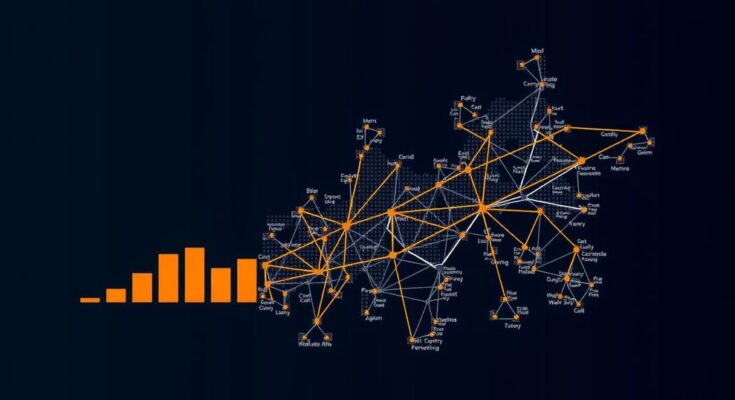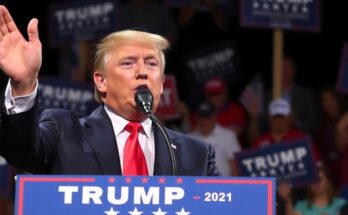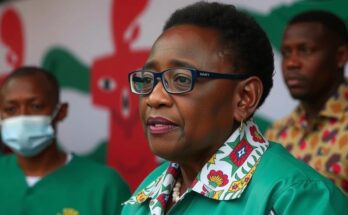Germany is set for elections after Chancellor Olaf Scholz’s coalition collapsed. Polls indicate the CDU may lead, while the far-right AfD gains influence. Key issues at stake include the struggling economy, foreign policy challenges with Ukraine, and the potential impact of U.S. tariffs. The political landscape is poised for significant changes as factions vie for power.
In the wake of a coalition collapse led by Chancellor Olaf Scholz, Germany is preparing for an impending election likely to take place on February 23. This election comes against a backdrop of significant national challenges, including a struggling economy and international issues stemming from the conflict in Ukraine and a potential return of Donald Trump to presidential office in the United States. Scholz’s ruling coalition, known as the “traffic light” coalition, has faced increasing internal strife, primarily due to conflicting fiscal ideologies among its members – the Social Democratic Party (SPD), the Greens, and the Free Democrats (FDP). The collapse was precipitated by disputes over budgetary priorities and fiscal policies, specifically concerning Germany’s debt brake, which limits public borrowing. The upcoming election is expected to be dominated by current polling trends that indicate the Christian Democratic Union (CDU) is leading with 32 percent support, positioning Friedrich Merz, the party leader, as a likely contender for the chancellorship. Merz’s strategy includes a rightward shift of the party, tax reductions, and stringent immigration policies, while Scholz prepares another campaign in a bid to retain his position despite declining popularity. Meanwhile, the far-right Alternative for Germany (AfD) is poised for a historic electoral performance, potentially securing 20 percent of the vote, amid concerns regarding its extremist elements. Internationally, Germany’s future regarding defense and foreign policy aligns with the evolving dynamics in Ukraine, particularly in light of Trump’s aggressive tariff proposals which threaten to impact Germany’s export-dependent economy. A proposed reform of the debt brake is gaining traction among various stakeholders who argue for increased public investment to address persistent economic stagnation. The looming election presents critical implications for Germany’s fiscal policies and foreign relations, particularly as the nation grapples with the pressing need for strategic leadership within the European Union.
The article provides insight into the political landscape in Germany preceding the forthcoming elections triggered by the collapse of Chancellor Olaf Scholz’s coalition government. It discusses the economic challenges facing the country, compounded by external pressures such as the conflict in Ukraine and the potential return of Donald Trump to U.S. politics. Observations on public sentiment towards various political parties reveal shifts in power dynamics, with implications for future governance. Furthermore, significant concerns regarding the far-right alternative political movements highlight the evolving social issues both domestically and in broader European contexts.
In summary, as Germany approaches its upcoming elections, the fallout from the coalition collapse highlights the deep divisions within its political sphere. The leading polling of the CDU and the rise of the AfD reflect shifting political tides, which may reshape Germany’s domestic and foreign policy trajectories. The necessity for reforms in economic management, particularly relating to the debt brake, signifies the growing call for substantial policy transformations amid mounting national and international challenges.
Original Source: www.aljazeera.com




